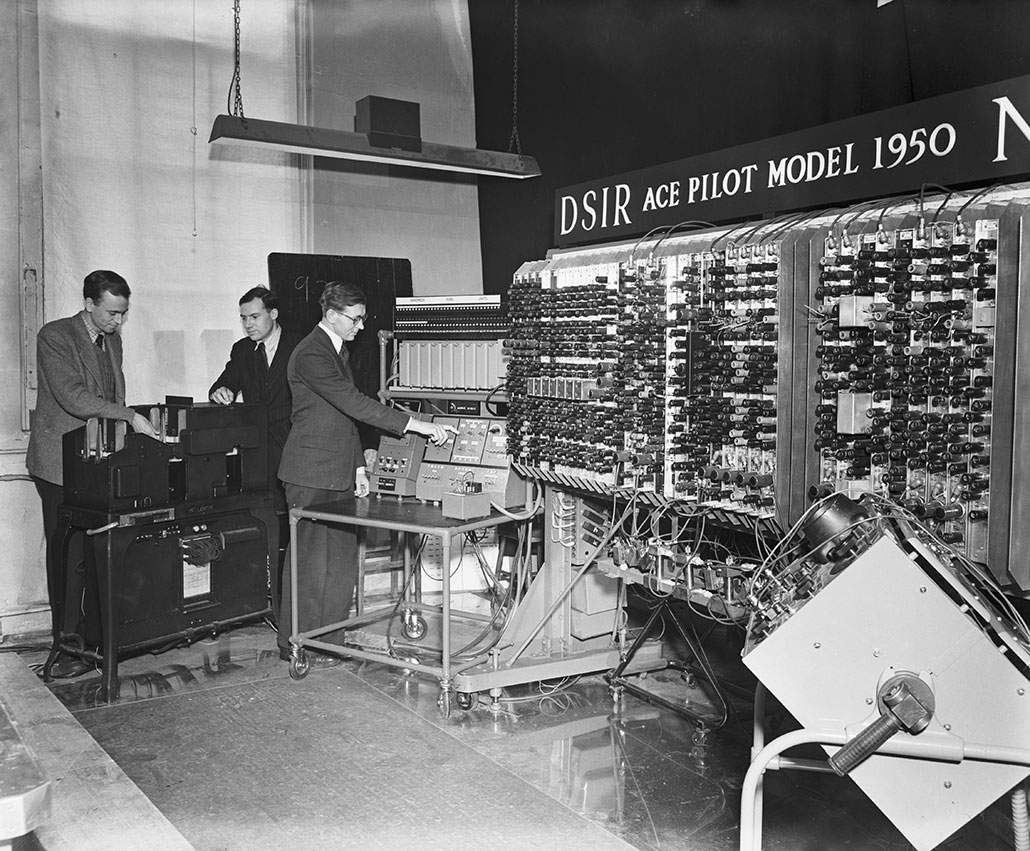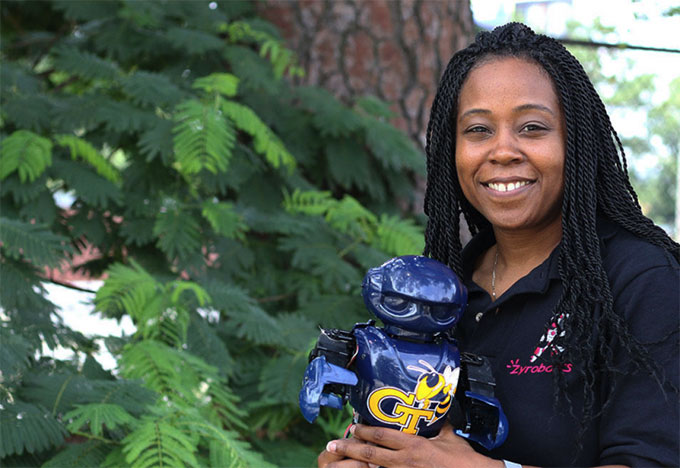Today, we’re bordered by supposed clever gadgets. Alexa plays music on demand. Siri can tell us who won last night’s baseball game– or if it’s most likely to rainfall today. Yet are these equipments really wise? What would it indicate for a computer system to be smart, anyway?
Digital assistants might be brand-new, yet concerns concerning maker intelligence are not. Back in 1950, British mathematician as well as computer system scientist Alan Turing thought of a way to test whether a maker was really intelligent. He called it the “imitation video game.” Today, we call it the Turing examination.
The game goes like this: A person– allow’s call this person Gamer A– rests alone in a space as well as kinds messages to 2 other gamers. Let’s call them B and also C. One of those gamers is human, the other is a computer system. Gamer A’s job is to figure out whether B or C is the human.
Turing debuted his game concept in a 1950 paper in the journal Mind. He began the paper with these words: “I propose to take into consideration the question, ‘Can machines think?'”
It was a strong inquiry, taking into consideration computers as we now recognize them did not yet exist. But Turing had been functioning because back in 1936 on the idea for the initial computer that individuals can configure with software program. This would certainly be a computer system that might do anything asked of it, given the appropriate guidelines.
Though never ever built, Turing’s design led straight to today’s computers. And also Turing believed that such makers would certainly eventually become sophisticated enough to really assume.
From codes towards coding
Alan Turing was a British mathematician as well as computer system scientist who lived from 1912 to 1954. In 1936, he created the basic idea for the very first programmable computer. That is, a computer that can do anything asked of it, when provided the proper instructions. (Today, we call that bundle of instructions software program.)
Turing’s work was disturbed during World War II when the British federal government requested for his assistance. Nazi leaders used a cypher, called Enigma Code, to hide the significance of orders sent out to their army commanders. The code was incredibly tough to damage– yet Turing and also his group managed to do it. This helped the British as well as their allies, consisting of the United States, win the battle.
After the battle, Turing turned his focus back to computers and also AI. He started to lay out the layout for a programmable computer system. The machine was never developed. However the 1950 British computer system, shown to right, was based upon Switching’s style.

If people appear to be believing, we assume they are. Turing suggested we make use of the exact same method when judging computers. Thus: the Turing examination. If a computer might fool somebody right into believing it was human, it must be assuming like one.
A computer system passes the examination if it can encourage people that it’s a human 30 percent of the moments it plays the video game. Turing figured that by the year 2000, a maker would certainly be able to draw this off. In the years considering that, lots of makers have actually tipped up to the obstacle. However their outcomes have actually always been suspicious. As well as some researchers currently question whether the Turing test is an useful procedure of equipment smarts whatsoever.

At the time Turing recommended his imitation video game, it was a just a theoretical examination, or believed experiment. There were no computer systems that could play it. But artificial intelligence, or AI, has come a long way ever since.
In the mid-1960s, a scientist named Joseph Weizenbaum produced a chatbot called ELIZA. He configured it to adhere to a very simple set of regulations: ELIZA would just parrot back any type of question it had actually been asked.
One of the programs ELIZA can run made her act like a psychologist talking with a patient. As an example, if you said to ELIZA, “I’m concerned I might fail my math examination,” it might respond, “Do you think you might fail your mathematics test?” Then if you claimed, “Yes, I believe I might,” ELIZA might claim something like, “Why do you say that?” ELIZA never ever said anything more than stock replies as well as re-wordings of what people said to it.
ELIZA never ever took the Turing test. But it’s possible it would certainly have passed. Lots of people who engaged with it thought they were getting feedbacks from an actual professional. Weizenbaum was alarmed that many individuals assumed ELIZA was intelligent– even after he described how “she” functioned.
In 2014, during a Turing-test competition in England, an AI chatbot program called Eugene Goostman talked for five minutes with each of 30 human courts. It handled to persuade 10 of them that it was a human. That would seem to have been enough to pass the Turing examination. Eugene utilized a few techniques, nonetheless. Actually, some professionals say the crawler cheated.
In 2018, Google announced a new personal-assistant AI program: Google Duplex. It didn’t take part in a Turing-test competitors. Still, it was encouraging. Google demonstrated the power of this tech by having the AI call a hairdresser and also timetable a consultation. The receptionist who made the consultation didn’t appear to realize she was speaking to a computer system.
Another time, Duplex phoned a restaurant to make reservations. Again, the person who took the telephone call really did not seem to see anything odd. These were quick exchanges. As well as unlike in a genuine Turing examination, individuals who responded to the phone weren’t deliberately trying to review whether the customer had actually been human.
So have such computer system programs passed the Turing test? Most likely not, the majority of scientists currently claim.

had actually been produced only by some computer system using artificial intelligence(AI). Jesussanz/istock/Getty Images Plus Inexpensive methods The Turing examination has actually provided generations of AI researchers with something to chew on. Yet it has actually additionally elevated a great deal of criticism. John Laird is a computer scientist that in June relinquished the College of Michigan, in Ann Arbor. Last year, he established the Center for Integrative Cognition, in Ann Arbor, where he currently functions. For much of his career, he’s serviced producing AI that can deal with many different kinds of issues. Scientists call this “general AI.”
Laird states programs that try to pass the Turing test aren’t working to be as clever as they might be. To appear more human, they instead try to make errors– like spelling or math mistakes. That may aid a computer convince a person it’s human. But it’s worthless as an objective for AI researchers, he says, due to the fact that it doesn’t assist scientists produce smarter devices.
Hector Levesque has slammed the Turing examination for similar factors. Levesque is an AI researcher in Ontario, Canada, at the College of Toronto. In a 2014 paper, he suggested that the style of the Turing test creates developers to produce AI that is efficient deceptiveness, yet not always intelligent in any useful method. In it, he made use of the term “low-cost tricks” to explain techniques like the ones made use of by ELIZA and Eugene Goostman.
Altogether, says Laird, the Turing test is good for thinking of AI. Yet, he adds, it’s very little great to AI scientists. “No serious AI scientist today is trying to pass the Turing examination,” he states.
However, some contemporary AI programs could be able to pass that test.
Computing pioneers

massive amounts of data. Those data originate from publications, write-ups in papers as well as blogs, or maybe social media sites such as Twitter as well as Reddit. Their training goes something similar to this: Scientists offer the computer system a sentence with a word missing. The computer has to think the missing out on word. In the beginning, the computer system does a rather lousy task
:”Tacos are a popular … skateboard.”But via trial and error, the computer system gets the hang of it. Quickly, it may fill in the blank like this:” Tacos are a preferred food.”Eventually, it could generate:”Tacos are a prominent food in Mexico and also in the USA.”Once educated, such programs can utilize language very much as a human does. They can write article. They can summarize a news article. Some have actually also discovered to compose computer system code. You have actually possibly communicated with comparable technology. When you’re texting, your phone
might suggest the next word. This is a function called auto-complete. Yet LLMs are greatly a lot more powerful than auto-complete. Brian Christian states they resemble” auto-complete on steroids.”Christian examined computer science as well as approach. He currently composes books concerning modern technology. He assumes big language designs might have already passed the Turing test– a minimum of unofficially.” Many individuals,” he says,”would certainly discover it tough to tell the difference between a text exchange with among these LLMs as well as one with an arbitrary complete stranger.”Blaise Agüera y Arcas works at Google in Seattle, Wash., designing technologies that utilize AI. In a paper in Daedalus in May, he explains conversations he had with LaMDA, an LLM program. For instance, he asked LaMDA if it had a sense of scent. The program responded that it did. Then LaMDA informed him its favored smells were spring showers as well as the desert after a rainfall. Certainly, Agüera y Arcas understood he was talking with an AI. Yet if he had not, he may have been fooled. Learning about ourselves It’s tough to say whether any machines have actually really passed the Turing test. As Laird as well as others argue, the examination may not imply much anyhow. Still, Turing and his examination obtained researchers as well as the public thinking about
what it indicates to be smart– and what it suggests to be human. The Turing test has motivated a lot of research over the decades– additionally a lot of humor.XKCD(CC BY-NC 2.5 )In 2009, Christian participated in a Turing-test competitors. He composed
regarding it in his publication, The Most Human Human. Christian was one of individuals trying to convince the courts that he had not been a computer. He says it was an odd sensation, trying to encourage another individual that he was really human. The experience began being about computer science, he says. But it quickly ended up being about just how we link to other people.”I wound up discovering as much regarding human interaction as I did concerning AI, “he claims. An additional significant concern encountering AI researchers: What are the impacts of making devices extra human-like? Individuals have their predispositions. So when individuals build machine-learning programs, they can pass their biases on AI.”The complicated component is that when we create a model, we have to educate it on information,”says Anqi Wu.”Where does that information originated from?”Wu is a neuroscientist who researches machine learning at Georgia Technology University in Atlanta. The huge quantity of data fed into LLMs is taken from human communications– books, sites and also even more. Those information educate AI a lot concerning the world. They likewise educate AI our prejudices. In one situation, AI researchers created a computer system program that might do a kind of mathematics with words. For instance, when given the declaration”Germany plus capital, “the program
returned the funding of Germany:”Berlin. “When given”Berlin minus Germany plus Japan,” the program came back with the funding of Japan: “Tokyo.” This was exciting. But when the scientists place in” physician minus male,” the computer system returned” registered nurse.”And also offered “computer system developer minus man,”the program reacted “housewife.” The computer system had plainly picked up some biases concerning what types of work are done by men and women. Determining just how to educate AI to be impartial may boost humankind as long as it improves AI. AI that gains from our web sites, messages as well as
articles will certainly appear a lot like we do. In training AI to be impartial, we first have to identify our very own prejudices. That might aid us learn just how to be extra impartial ourselves. Perhaps that’s the truly important thing about the Turing examination. By looking carefully at AI to see if it seems like us, we see– for far better or even worse– ourselves.
Piter Walley
Piter’s career in journalism took off when he joined a local newspaper as a cub reporter. His insatiable curiosity and commitment to uncovering the truth set him apart from his peers. He quickly climbed the ranks and became known for his in-depth investigative pieces that shed light on critical societal issues.

